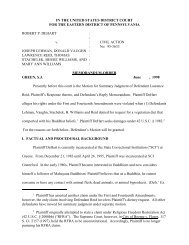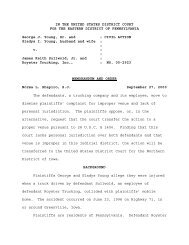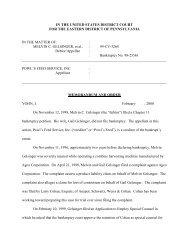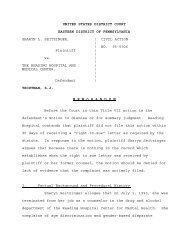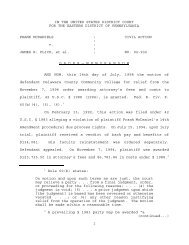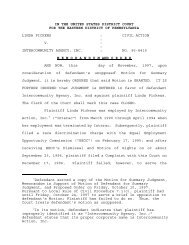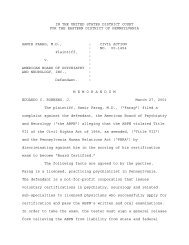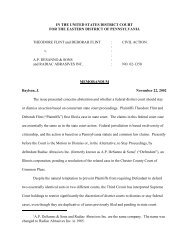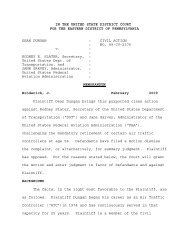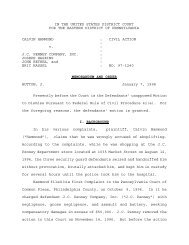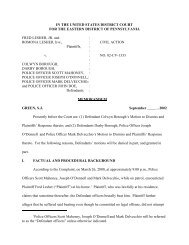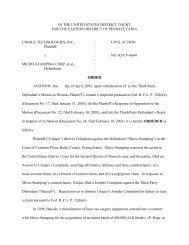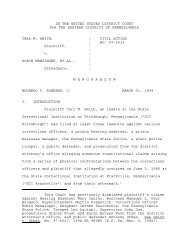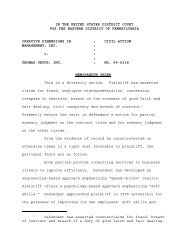1 In considering a motion to dismiss for failure to state a claim under ...
1 In considering a motion to dismiss for failure to state a claim under ...
1 In considering a motion to dismiss for failure to state a claim under ...
Create successful ePaper yourself
Turn your PDF publications into a flip-book with our unique Google optimized e-Paper software.
in a certain fashion, Am. compl. 4; pl. obj. 44-48.<br />
However, even if it were appropriate, 10<br />
the alleged facts are<br />
insufficient <strong>for</strong> a grant of mandamus. 11<br />
Next,<br />
an award of at<strong>to</strong>rney’s fees and costs is<br />
requested <strong>under</strong> 26 U.S.C. §7430(a) as a result of plaintiff’s<br />
successful proceeding in the United States Tax Court, Am.<br />
compl. 4; pl. obj. 13. That <strong>claim</strong> must be brought in the<br />
court in which the litigant prevailed, not here. 26 U.S.C.<br />
§7430(a).<br />
One <strong>claim</strong> cannot be decided <strong>under</strong> Rule 12. It concerns<br />
a certain document that plaintiff contends was used by the IRS in<br />
reaching invalid assessments against him. Plaintiff cites 5 U.S.C.<br />
§552a as authority <strong>for</strong> requiring the IRS <strong>to</strong> divulge such<br />
10 The conditions <strong>for</strong> mandamus are the <strong>state</strong>ment of a<br />
clear right <strong>to</strong> the relief sought and the unavailability of any<br />
other adequate remedy. See <strong>In</strong> re Asbes<strong>to</strong>s School Litigation, 46<br />
F.3d 1284, 1288-89 (3d Cir. 1994). Furthermore, mandamus is a<br />
drastic remedy <strong>to</strong> be restricted <strong>to</strong> “extraordinary situations,”<br />
and invoked “sparingly” and with discretion. Id. at 1288.<br />
11<br />
The amended complaint also requests an<br />
injunction against the IRS, Am. compl. demand 4. Even if<br />
not styled a petition <strong>for</strong> a writ of mandamus, such a request<br />
is barred by the Anti-<strong>In</strong>junction Act, 26 U.S.C. §7421(a).<br />
Our Circuit has held that even <strong>under</strong> a statu<strong>to</strong>ry exception<br />
<strong>to</strong> the Anti-<strong>In</strong>junction Act, taxpayers will not be successful<br />
unless they can allege facts sufficient <strong>to</strong> meet the<br />
“traditionally required” conditions necessary <strong>for</strong> injunctive<br />
relief: irreparable harm, absence of legal remedy, and<br />
unlikelihood no chance the government will prevail on<br />
merits. Robinson v. United States, 920 F.2d 1157, 1160 (3d<br />
Cir. 1991) (citing Flynn v. United States, 786 F.2d 586, 590<br />
(3d Cir. 1986)).<br />
8



